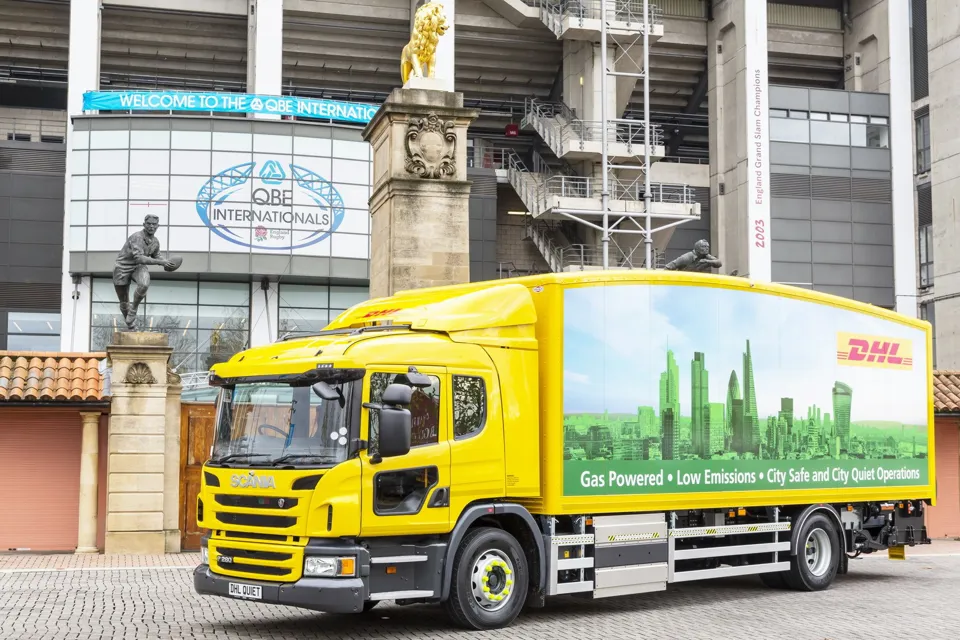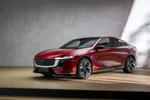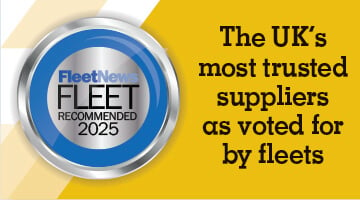Three-quarters (75%) of commercial fleet operators would be persuaded to make the switch to more environmentally friendly fuels and technologies with greater Government support.
The findings, from a Commercial Fleet survey, come after the results of the Government’s Low Carbon Truck Trial were published and the winners of its Low Emission Freight and Logistics Trial were announced.
Both show the potential for the reduction in emissions, but if the Government wants the commercial fleet sector to make the switch to greener, cleaner fuels, the Freight Transport Association (FTA) says it needs significant financial support, similar to that provided to the car sector.
“The majority of Government funding to date has been allocated to cars,” said Rachael Dillon, FTA climate change policy manager. “The UK gas truck fleet makes up just 0.2% of the overall truck fleet and there is potential for significant progress to be made in increasing these numbers. However, if the Government is serious about increasing the presence of ‘green’ trucks on our roads, it must ensure it continues to help provide facilities and incentives for operators to use them.”
Businesses are able to apply for grants of up to £20,000 when switching their large trucks to EVs after the Government committed an additional £4m to the plug-in van grant scheme in October 2016, extending the eligibility to including larger electric vehicles (EVs) of more than 3.5 tonnes.
The plug-in van grant has been available for small commercial vehicles of up to 3.5 tonnes since 2012, but take-up has been disappointing.
The industry believes that high costs of vehicle conversions or buying ultra-low emission vehicles plus a lack of public refuelling infrastructure are significant barriers to putting greener trucks on the road.
Dillon continued: “It is crucial that renewable fuels such as biomethane can be utilised in trucks to bring bigger emission reductions, especially when there are limited options for heavier vehicles to decarbonise. Government must incentivise the production of biomethane for use as a road transport fuel rather than through the heat sector.”
The Department for Transport (DfT), the Office for Low Emission Vehicles (OLEV) and Innovate UK (formerly the Technology Strategy Board) jointly funded the Low Carbon Truck Trial, with £11.3 million to support the procurement of low emission HGV technologies and their supporting infrastructure.
Participants also invested £12.1m of their own cash in the 12 projects which involved 35 companies and more than 370 vehicles, including a majority of dual fuel vehicles, some dedicated gas vehicles and some vehicles running on used cooking oil. Those involved included Argos, DHL, Stobart and John Lewis.
The trial showed that gas commercial vehicles have the potential to deliver significant greenhouse gas (GHG) savings when a non-fossil, renewable or synthetic methane blend is used, according to the Low Carbon Vehicle Partnership (LowCVP).
The LowCVP was commissioned in 2016 to conduct a testing programme on the latest methane trucks to identify the performance of Euro 6 vehicles and identify the greenhouse gas impacts, highlighting any areas for further development. Its report was published alongside the DfT’s final report on the Low Carbon Truck Trial, which began in 2012 and concluded last year.
LowCVP managing director Andy Eastlake told Commercial Fleet: “This work shows that powering heavy vehicles with natural gas – and, particularly, biomethane – does have the potential to make a significant contribution to cutting emissions from this hard-to-tackle sector of road transport.”
The LowCVP report showed that the Euro 6 dedicated gas vehicles tested through the programme exhibited very low levels of methane slip, typically adding less than 0.5% to the overall GHG impacts of those vehicles compared with the CO2-only case.
However, the only aftermarket dual-fuel system tested, converting a Euro 6 diesel truck to diesel and natural gas operation, exhibited high levels of methane slip (sufficient to increase GHG emissions by about 20%).
The aftermarket dual fuel (diesel/CNG) conversion of a Euro 5 vehicle also exhibited high levels of methane slip (sufficient to increase GHG emissions by up to 30%).
In addition, the LowCVP report concluded that Euro 6-dedicated gas vehicles emit lower levels of NOx emissions than the already low levels exhibited by their diesel counterparts. The same is true if only NO2 emissions are considered. Emissions of carbon monoxide and hydrocarbons however, were typically higher.
In an effort to further demonstrate new technologies and to encourage the widespread introduction of low and zero emission vehicles to UK fleets, Government cash has been earmarked to 20 firms which set out plans for innovative ways to deploy low and zero emission vehicles.
They will each receive a share of £20m from OLEV and Innovate UK after being named as participants in the Government’s Low Emission Freight and Logistics Trial.
Innovate UK manufacturing and materials director, Simon Edmonds, believes they will spearhead the uptake of the next generation of low emission freight and fleet vehicles.
He said: “It builds on the results of previous low carbon projects with OLEV and the data collected from this new trial will be invaluable to future development and commercialisation of these vital technologies.”
There were more than 40 applications for the scheme – and the winners include a scheme from Tevva Motors to increase battery range for electric vehicles.
A partnership led by Ultralow Emission Mileage Company from Liverpool will receive £1.31m to carry out trials using hydrogen dual-fuel technology, while UPS will get £1.33m to invest in smart charging of its electric vans in central London.
Air Liquide Group receives the largest amount of funding – £2.57m – for its project trialling biogas in 86 lorries ranging from 26 tonnes to 44 tonnes. In addition, five refrigeration units will use a prototype liquid nitrogen system.
Meanwhile, Arcola Energy will receive £360,000 towards the development of a zero-emission drivetrain, which will be incorporated into a 3.5-tonne van. The 1,000kg payload vehicle will have an approximately 200-mile range, in urban use.
Project partner Haydale Composite Solutions will develop a 700bar hydrogen tank to suit the emerging refuelling standards and enable the range extension for the vehicle.
Ben Todd, managing director at Arcola Energy, said: “This project builds on many years of our work developing and integrating hydrogen fuel cell systems into vehicles ranging from lightweight two-seaters to double-decker buses.”
Importantly, it will support expansion of Arcola Energy’s engineering services offering to include the whole hydrogen-electric hybrid drive train from H2 tank to wheels.
Todd continued: “From our experience in supplying zero-emission vans to end-users, we are only too aware of the absence of a zero-emission 3.5-tonne commercial vehicle in the marketplace. Thus, we are delighted to be working with other UK-based partners to deliver and commercially trial a scalable, practical approach to addressing this.
“We’re grateful for the consistent support the Government has shown for this project and other low emission vehicle programmes, supporting the development of a UK supply chain for this and other much-needed drivetrain solutions.”
Commercial Group will trial the vehicle – the first fully zero-emission vehicle in its hydrogen-powered fleet.
Arthur Hindmarch, managing director of Commercial Group, said: “We are tremendously excited to be involved in a project that is not just at the cutting edge of zero-emission vehicle development, but which promises to re-invigorate the UK’s drivetrain manufacturing industry, harnessing the country’s long-standing capability in this area.
“We believe that hydrogen-powered transport solutions are a key part of our zero-emission future and are proud to be an early adopter.”
The Government says the multi-million pound Low Emission Freight and Logistics Trial will help the UK meet its CO2 reduction targets and represents another step towards its target for all new cars and vans to be zero emission by 2040.
Transport minister John Hayes concluded: “Each one of these successful projects will help cut vehicle emissions, improving air quality and reducing pollution in towns and cities.”



















Login to comment
Comments
No comments have been made yet.